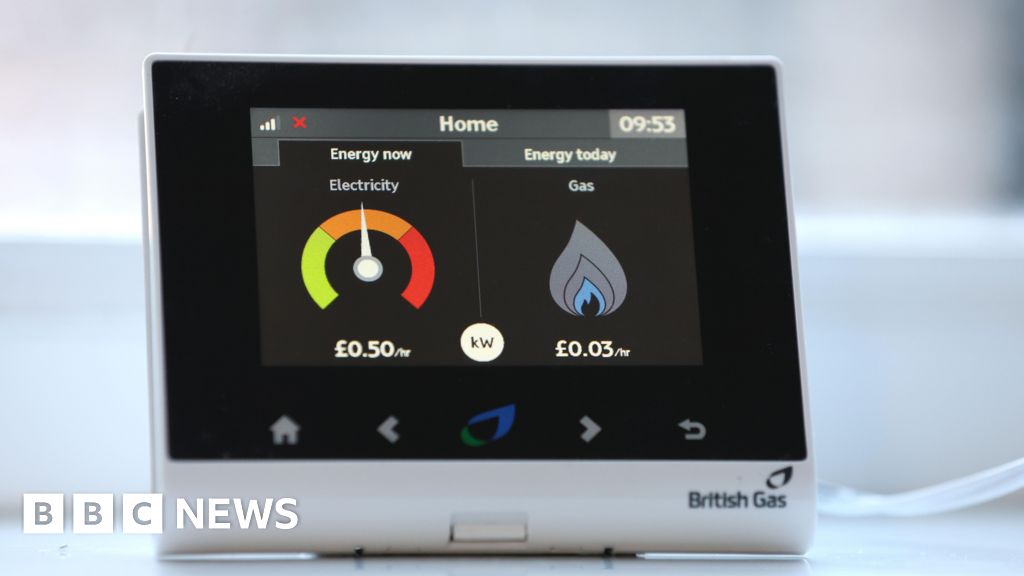Politics
UN Security Council approves US-backed resolution supporting Trump’s Gaza proposal
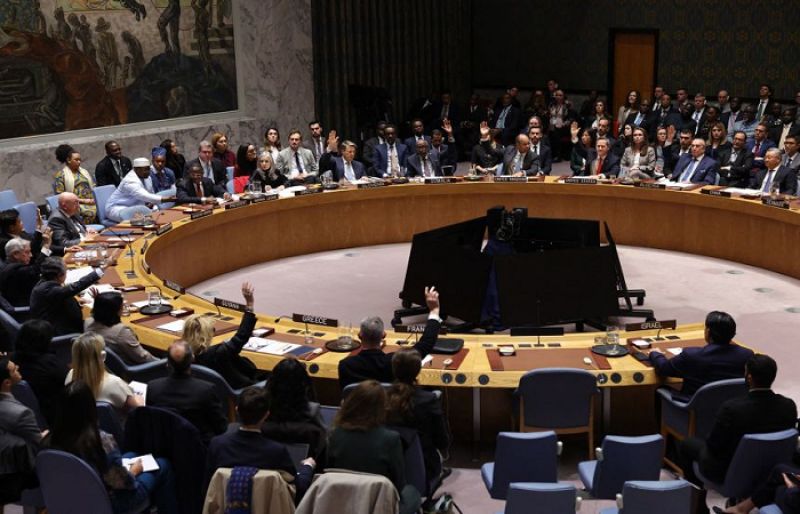
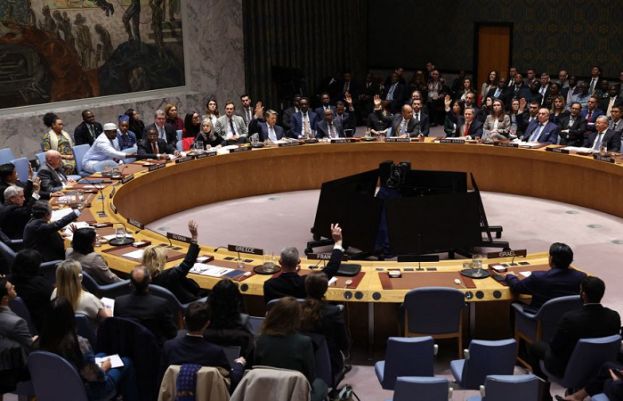
The UN Security Council on Monday approved a US-drafted resolution backing President Donald Trump’s plan to end the war in Gaza and authorizing the deployment of an international stabilization force in the Palestinian territory.
Israel and Hamas last month endorsed the first phase of Trump’s 20-point Gaza proposal — a cease-fire in their two-year conflict and a hostage-release agreement — but UN approval is viewed as essential for legitimizing a transitional governing body and assuring countries considering contributing troops.
According to the text, UN member states may participate in the Trump-chaired Board of Peace, envisioned as an interim authority tasked with overseeing Gaza’s reconstruction and economic revival.
The resolution also authorizes the establishment of an international stabilization force responsible for demilitarizing Gaza, including dismantling weapons and eliminating militant infrastructure.
Hamas, however, reiterated in a statement that it will not give up its arms, asserting that its struggle against Israel constitutes legitimate resistance — a position that could set the group on a collision course with the newly mandated force.
“The resolution imposes an international guardianship over the Gaza Strip, something our people and factions reject,” Hamas said in its statement following the vote.
US Ambassador to the UN Mike Waltz said the measure — which includes Trump’s full 20-point plan as an annex — “lays out a viable path toward Palestinian self-determination … where rockets are replaced by olive branches and a political horizon can finally emerge.”
“It breaks Hamas’ hold, and it ensures Gaza can rise free from the shadow of terror — more stable, more prosperous, and more secure,” Waltz told the Security Council ahead of the vote.
Russia, which had earlier hinted it might veto the resolution, ultimately abstained, allowing it to pass. China also abstained, with both delegations criticizing the limited role envisioned for the UN in Gaza’s future.
“Essentially, the council is giving its blessing to a US initiative based solely on Washington’s assurances, handing full control of the Gaza Strip to the Board of Peace and the ISF, whose modalities we still know nothing about,” Russian ambassador Vasily Nebenzya said after the vote.
The Palestinian Authority, meanwhile, welcomed the resolution and said it is prepared to help implement it. Diplomats noted that the PA’s endorsement last week played a crucial role in preventing a Russian veto.
Trump hailed the vote as “a moment of truly historic proportion” in a social-media post, adding that the names of Board members — along with “many more exciting announcements” — would be unveiled in the coming weeks.
‘Pathway’ to statehood
The resolution has proven controversial in Israel because it references a future possibility of statehood for the Palestinians.
The resolution’s text says that “conditions may finally be in place for a credible pathway to Palestinian self-determination and statehood” once the Palestinian Authority has carried out a reform program and Gaza’s redevelopment has advanced.
“The United States will establish a dialogue between Israel and the Palestinians to agree on a political horizon for peaceful and prosperous coexistence,” it says.
Prime Minister Benjamin Netanyahu, under pressure from right-wing members of his government, said on Sunday that Israel remained opposed to a Palestinian state and pledged to demilitarise Gaza “the easy way or the hard way.”
Politics
Netanyahu criticizes extremist settlers in West Bank
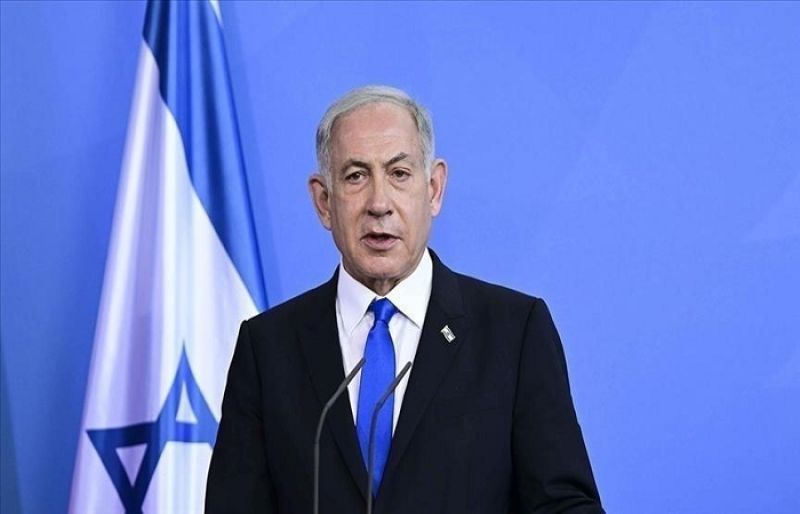
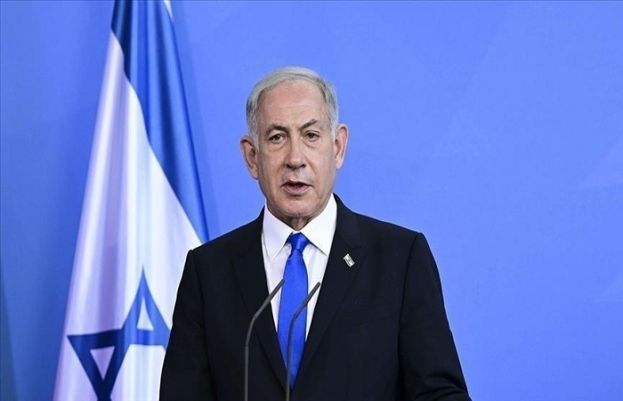
Israeli Prime Minister Benjamin Netanyahu vowed to take action against a violent “handful of extremists” among Israeli settlers in the occupied West Bank, following clashes and another attack on Monday.
On Monday evening, homes and vehicles in a Palestinian village were set on fire, just hours after members of the so-called Hilltop Youth clashed with security forces who were dismantling an illegal settler outpost.
Violence in the West Bank has surged since the Hamas attack on Israel triggered the Gaza war in October 2023.
In recent weeks, attacks attributed to Israeli settlers—particularly those living in outposts—have increased, targeting Palestinians and sometimes even Israeli soldiers.
“I view with great severity the violent riots and the attempt by a handful of extremists to take the law into their own hands,” Netanyahu said, calling the perpetrators “a group that does not represent” settlers in the Palestinian territories.
He added, “I call on law enforcement authorities to deal with the rioters to the fullest extent of the law.
I intend to address this personally and convene the relevant ministers as soon as possible to confront this serious issue.”
Earlier on Monday, Israeli security forces deployed hundreds of personnel to evacuate and demolish the illegal Tzur Misgavi outpost in the Gush Etzion area, near the Palestinian town of Sair.
Security forces fired tear gas and stun grenades during clashes with extremist settlers, who were trying to evict Palestinian residents and establish settlements without government approval.
Some demonstrators climbed onto a digger and stood atop structures as bulldozers demolished them.
At least 10 prefabricated homes were destroyed, leaving women with young children sitting amid the rubble.
Village attacked
Hours later, the Israeli military said it had been dispatched alongside police to the nearby Palestinian village of Jab’a, around 30 kilometres southwest of Jerusalem, following reports of “dozens of Israeli civilians who set fire to and vandalised homes and vehicles”.
“Israeli security forces at the scene are conducting searches to locate involved individuals. The incident is still ongoing,” it said in a statement.
“These violent incidents divert the attention of commanders and soldiers from their primary mission of defence and counter-terrorism.”
Israeli opposition leader Yair Lapid said: “The riot of the Hilltop Youth in the village of Jab’a is another stage in the escalating violence.”
The United Nations said October had been the worst month for West Bank settler violence since it began recording incidents in 2006, with 264 attacks that caused casualties or property damage.
Almost none of the perpetrators have been held to account by the Israeli authorities.
Shaming Judaism
Israeli Foreign Minister Gideon Saar said the “Jewish rioters” in the West Bank were harming Israel, “shaming Judaism and causing damage to the settlement enterprise”.
Defence Minister Israel Katz said the government would “continue to develop and grow settlements” while upholding the law “and the stability of the region, as he condemned the “criminal anarchists”.
Israel’s military chief Eyal Zamir last week pledged to halt settler violence in the West Bank, following a wave of attacks targeting Palestinians.
Israel has occupied the West Bank since 1967, and more than 500,000 Israelis now live there in settlements, alongside some three million Palestinians.
While all Israeli settlements in the Palestinian territory are illegal under international law, outposts are also prohibited under Israeli law.
However, many end up being legalised by the Israeli authorities.
At least 1,006 Palestinians, including militants, have been killed in the West Bank by Israeli forces or settlers since the Gaza war started, according to the Palestinian health ministry.
During the same period, 43 Israelis, including soldiers, have been killed in Palestinian attacks in the West Bank, according to official Israeli figures.
Politics
UN Security Council adopts US resolution on Trump’s Gaza plan
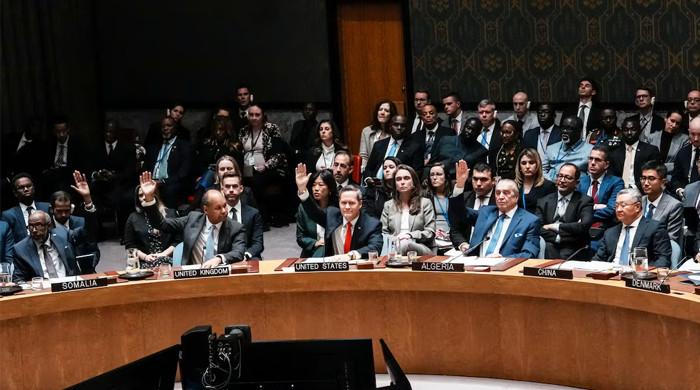
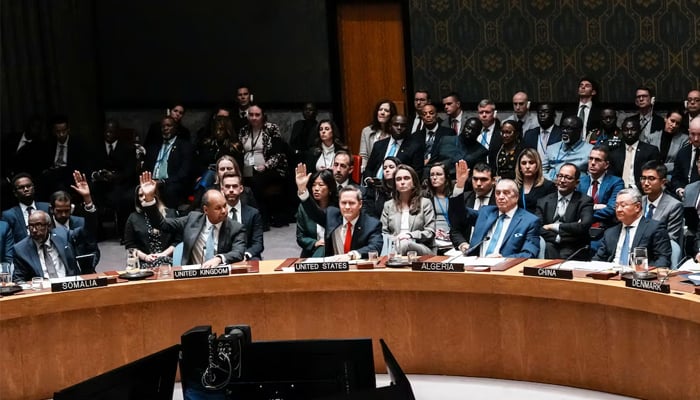
- Hamas rejects resolution, insists it will not disarm.
- Russia and China abstain from vote on UN resolution.
- Trump hails vote as “moment of true Historic proportion”.
The UN Security Council on Monday voted to adopt a US-drafted resolution endorsing President Donald Trump’s plan to end the war in Gaza and authorising an international stabilisation force for the Palestinian enclave.
Israel and the Palestinian resistance group Hamas agreed last month to the first phase of Trump’s 20-point plan for Gaza — a ceasefire in their two-year war and a hostage-release deal — but the UN resolution is seen as vital to legitimising a transitional governance body and reassuring countries that are considering sending troops to Gaza.
The text of the resolution says member states can take part in the Trump-chaired Board of Peace envisioned as a transitional authority that would oversee reconstruction and economic recovery of Gaza. It also authorises the international stabilisation force, which would ensure a process of demilitarising Gaza, including by decommissioning weapons and destroying military infrastructure.
Hamas, in a statement, reiterated that it will not disarm and argued that its fight against Israel is legitimate resistance, potentially pitting the fighter group against the international force authorised by the resolution.
“The resolution imposes an international guardianship mechanism on the Gaza Strip, which our people and their factions reject,” Hamas said in its statement, issued after the adoption of the resolution.
Mike Waltz, the US ambassador to the UN, said the resolution, which includes Trump’s 20-point plan as an annex, “charts a possible pathway for Palestinian self-determination … where rockets will give way to olive branches and there is a chance to agree on a political horizon.”
“It dismantles Hamas’ grip, it ensures Gaza rises free from terror’s shadow, prosperous and secure,” Waltz told the council ahead of the vote.
Russia, which holds a veto on the Security Council, earlier signaled potential opposition to the resolution but abstained from the vote, allowing the resolution to pass.
The UN ambassadors of Russia and China, which also abstained, complained that the resolution does not give the UN a clear role in the future of Gaza.
“In essence, the council is giving its blessing to a US initiative on the basis of Washington’s promises, giving complete control over the Gaza Strip to the Board of Peace and the ISF (international stabilisation force), the modalities of which we know nothing about so far,” Russian ambassador Vasily Nebenzya told the council following the vote.
The Palestinian Authority issued a statement welcoming the resolution, and said it is ready to take part in its implementation. Diplomats said the authority’s endorsement of the resolution last week was key to preventing a Russian veto.
Trump celebrated the vote as “a moment of true Historic proportion” in a social media post. “The members of the Board, and many more exciting announcements, will be made in the coming weeks,” Trump wrote.
‘Pathway’ to statehood
The resolution has proven controversial in Israel because it references a future possibility of statehood for the Palestinians.
The resolution’s text says that “conditions may finally be in place for a credible pathway to Palestinian self-determination and statehood” once the Palestinian Authority has carried out a reform program and Gaza’s redevelopment has advanced.
“The United States will establish a dialogue between Israel and the Palestinians to agree on a political horizon for peaceful and prosperous coexistence,” it says.
Prime Minister Benjamin Netanyahu, under pressure from right-wing members of his government, said on Sunday that Israel remained opposed to a Palestinian state and pledged to demilitarise Gaza “the easy way or the hard way.”
Politics
Iraqi PM-led coalition tops Iraq election with 46 seats, says commission
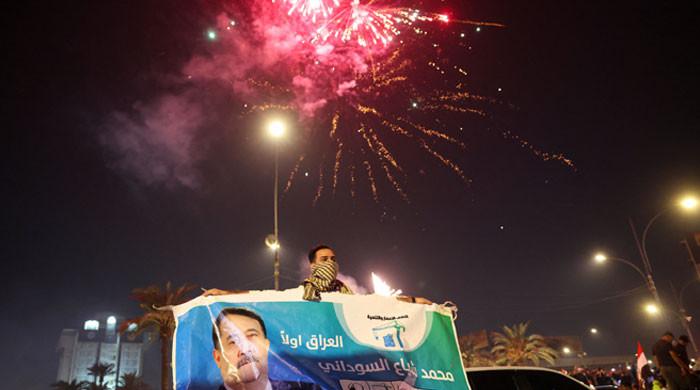
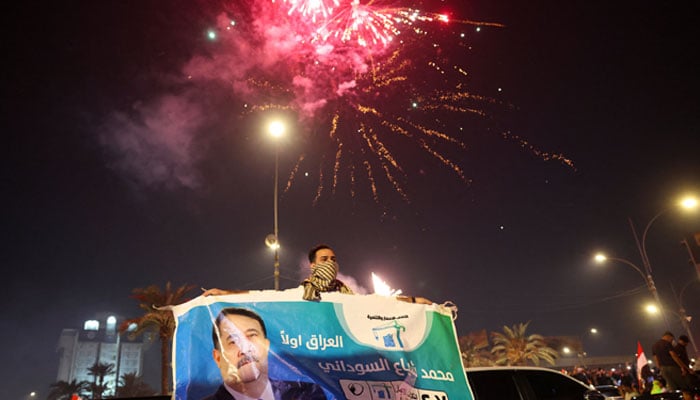
- Election turnout stands at 56 percent, says officials.
- Taqaddum Party secures 27 seats in parliamentary vote.
- Next govt faces challenge of managing armed groups.
BAGHDAD: Prime Minister Mohammed Shia al-Sudani’s political bloc won the most seats in Iraq’s election, final election results showed on Monday, but a new government could still be months away due to wrangling to build a majority.
The next government will need to navigate the delicate balance between US and Iranian influence. It must manage dozens of armed groups that are closer to Iran and answerable more to their own leaders than to the state, all while facing growing pressure from Washington to dismantle those militias.
Sudani’s list came in first with 46 seats in the 329-member parliament, the election commission said.
The Taqaddum Party, which draws support from Iraq’s west and north, won 27 seats. Former Prime Minister Nouri al-Maliki’s State of Law group won 29 seats, and the Kurdistan Democratic Party (KDP) secured 26 seats, according to the results issued by the commission.
The final total turnout in Iraq’s parliamentary election reached 56.11%, according to the commission.
Parties in Iraq’s ruling alliance said after the results were announced that they consider themselves the largest bloc in parliament. In a statement issued after a meeting attended by Sudani, the alliance said it would move ahead with nominating a prime minister for the next phase.
Sudani had been seeking a second term in last week’s election, but many disillusioned young voters saw the vote simply as a vehicle for established parties to divide Iraq’s oil wealth.
However, he has tried to cast himself as a leader who could make Iraq a success after years of instability, arguing he had moved against established parties that brought him to power.
-

 Tech1 week ago
Tech1 week agoFrom waste to asset: Turning ethanol production CO₂ into jet fuel
-

 Tech3 days ago
Tech3 days agoNew carbon capture method uses water and pressure to remove CO₂ from emissions at half current costs
-
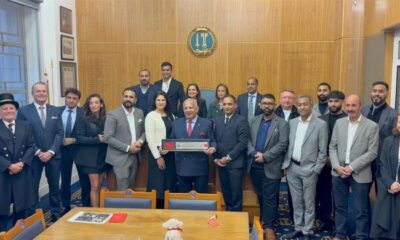
 Politics4 days ago
Politics4 days agoBritish-Pakistani honoured for transforming UK halal meat industry
-

 Sports2 days ago
Sports2 days agoTexas A&M officer scolds South Carolina wide receiver after touchdown; department speaks out
-
Sports1 week ago
College football winners and losers: The catch of the year saves Indiana
-

 Tech1 week ago
Tech1 week agoSecurity flaws in portable genetic sequencers risk leaking private DNA data
-
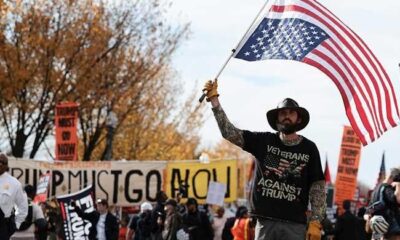
 Politics5 days ago
Politics5 days agoInternet freedom declines in US, Germany amid growing online restrictions
-

 Fashion4 days ago
Fashion4 days agoAfter London, Leeds and Newcastle, next stop Glasgow for busy Omnes





